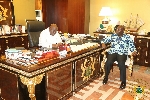Why a hot relationship runs cold

A human being’s need to re-master attachment-trauma is profound, yet, because it is an unconscious compulsion, people are not always aware that the attraction they feel for another person may be fuelled by a desire to re-do painful childhood wounds.
For example, if a person’s father was emotionally unavailable—meaning he constantly fluctuated between dismissive/rejecting to idealising/controlling—the person may be drawn to a partner who operates similarly. The unconscious promise of re-mastering a painful childhood dynamic is exhilarating and intoxicating. Winning the love of a partner who unconsciously reminds a person of a rejecting parent offers a chance to eradicate the original pain.
The hook is that many emotionally unavailable people launch a relationship by wooing their partner. By idealising and showering a partner with the affirmation and validation the partner is hungry for, the emotionally unavailable person easily reels a partner in. Yet, once the emotionally unavailable party has the partner invested in the relationship, he or she changes the game. Suddenly he or she becomes dismissive and critical. This throws the partner into a panic because the love he or she longs for is yanked away, which reawakens the trauma that an emotionally abusive parent inflicted. Instead of recognising the reality of the emotionally abusive relationship, the partner experiences searing emotional pain. The dynamic unconsciously reinforces the actions of an emotionally abusive parent and in order to escape the pain, the partner scrambles to return to ‘good graces,’ which grants the dysfunctional person additional control.
Usually the emotionally unavailable person reverts to an idealising mode in order to manipulate the partner into staying and investing. Because the partner regains the ‘love’ he or she desperately longs for, he or she absorbs the blame for the rupture in the relationship and unintentionally grants the emotionally unavailable person additional power.
This cycle usually continues and slowly erodes a partner’s self-esteem. The partner inevitably feels the injustice and unfairness of the emotionally unavailable person’s attacks and reacts with hurt and anger. The emotionally unavailable person typically responds in two ways: He or she either abandons the partner because the risk of being found out and losing control is too much or accuses the partner of being ‘too emotional’ or ‘too sensitive.’ Either way, the ‘hot’ relationship immediately cools or comes to a screeching halt.
Frequently people assume that an emotionally abusive person is consistently mean. Yet, if that were true, his or her manipulations would be readily and easily uncovered. It is the emotionally abusive person’s pattern of oscillating from devaluing to idealising that deceives a partner and keeps him or her second-guessing.
Several hallmarks of emotionally unavailable people include:
They swing from loving you to treating you with disdain.
They believe they are right and have difficulties entertaining a partner’s perspective if it differs from their own.
It is their way or the highway.
It is almost impossible to resolve conflict and simple disagreements explode into nightmarish fights.
They play the victim in order to garner sympathy and avoid taking responsibility for their actions.
They display sympathy but lack empathy.
They induce shame in a partner.
If a person had or has a tenuous relationship with a parent, talking to a psychotherapist may help. Gaining insight into childhood wounds helps illuminate the manipulations of an emotionally unavailable partner. Secure and authentic love is possible with the right person.
Source: Psychology Today
Source: Elikem Adiku
Trending News

2024 Green Ghana Day slated for June 7 | Yaa Naa calls for active participation
14:10
Akufo-Addo/Bawumia gov’t planning to rename Ameri Plant to Kumasi 1 Thermal Plant – Edudzi Tameklo
10:23
NDC outdoors Naana Opoku-Agyemang April 24
11:46
I am deeply saddened by the destruction caused by the recent fire at Madina Market-Alan Kyerematen
02:29
Judgment day for former MASLOC boss, others today
11:14
UEW distance education students call for MoE’s intervention over graduation requirement dispute
02:40
Sign Ghana National Service Authority Bill into law – NSS begs Akufo-Addo
10:53
MoH receives first batch of donated medical supplies after a year-long port delay
02:51
Geopolitics split African states’ response to Iran-Israel tension
10:37
Jefferson Sackey advocates peace and tolerance at Eid-ul-Fitr celebration
02:04



